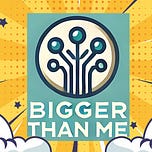In the early morning darkness of May 22nd, while most Americans slept, the House of Representatives passed legislation that could reshape millions of lives. They called it the "One Big Beautiful Bill Act." It passed by a single vote: 215 to 214. One Republican reportedly missed the vote because he had fallen asleep during the all-night session.
This post will break down what's in this sweeping legislation, explain why the process itself undermines democratic norms, examine the human cost of these changes, and most importantly, show you exactly what you can do to influence the Senate's response. The stakes couldn't be higher—millions of vulnerable Americans now hang in the balance.
What Just Happened
After marathon sessions that kept lawmakers debating through two consecutive nights, House Republicans pushed through more than 1,000 pages of legislation. This sweeping bill represents one of the most ambitious attempts to transform American society through a single piece of law in modern history.
The legislation combines massive tax cuts with severe reductions to social safety nets, touches immigration enforcement, includes regulatory rollbacks, and affects nearly every aspect of American life.
Here's what the reconciliation bill would do:
Make permanent the 2017 Trump tax cuts and add new tax breaks that primarily benefit the wealthy
Cut nearly $700 billion from Medicaid over the next decade
Impose strict work requirements of 80 hours per month for Medicaid recipients
Raise the debt ceiling by $4 trillion while adding $3.8 trillion to the national debt
Roll back clean energy incentives
Restrict states' ability to regulate artificial intelligence
Fund massive border security measures
But buried within these 1,000+ pages are provisions that represent something far more dangerous than policy changes—they represent an assault on the constitutional structure of American democracy itself.
The Constitutional Crisis Hidden in the Details
Section 70302: Eliminates Judicial Oversight - This provision would make it impossible for federal courts to enforce contempt orders against government officials. If a court rules that the president or other officials are breaking the law, the court would lose the funding necessary to hold anyone accountable. This eliminates a fundamental check on executive power.
Section 43201(c): Bans State AI Regulation - This section prohibits all state regulation of artificial intelligence for 10 years, potentially allowing unlimited election disinformation and other harmful AI applications without any oversight.
Nonprofit Destruction Provision - The bill allows the Treasury Department to strip tax-exempt status from nonprofits by claiming they support "terrorism," without clear standards or due process protections.
The vote was so close it came down to two Republicans voting against their party, one voting present (neither supporting nor opposing), and one Republican falling asleep from exhaustion after two consecutive all-night sessions.
Why This Process Breaks Democratic Norms
Several aspects of this legislative process represent significant departures from democratic traditions:
The naming itself is problematic. Naming legislation after a president's campaign slogan transforms policymaking into personal branding. The bill even includes provisions for "Trump accounts" (originally called "MAGA accounts").
The scale and scope raise serious concerns. Attempting to fundamentally restructure multiple major government programs through a single reconciliation bill bypasses regular committee processes and limits debate on decisions that will affect millions. The reconciliation process was designed for narrow budgetary matters, not sweeping social policy changes.
The process undermines deliberative democracy. Forcing exhausted legislators to vote on more than 1,000 pages of life-altering legislation after consecutive all-night sessions is not how democracy should work. By cramming health care, immigration, energy, AI regulation, and constitutional changes into one package, the bill undermines the committee system, regular order, and the deliberative process that allows for proper scrutiny of complex legislation.
The Human Cost
The numbers tell a stark story. According to the Congressional Budget Office, this bill would reduce resources for the bottom 10% of Americans by 4% while increasing resources for the top 10% by 2%.
Four percent might sound small, but for families already choosing between medicine and groceries, that means real hunger, untreated illness, and homelessness. For the wealthiest Americans, that 2% gain simply adds to already substantial wealth.
Healthcare Impact
An estimated 8.6 million Americans could lose health care coverage—that equals the entire population of Virginia. The cuts hit real communities in devastating ways:
Rural hospitals already operate on razor-thin margins, with many depending on Medicaid for 40 to 60% of their revenue. Without that funding, more will close their doors. The United States has already lost 136 rural hospitals since 2010. This bill would accelerate those closures, leaving entire counties without emergency rooms.
Maternity care faces a particular crisis. Half of rural counties already lack obstetric services. When Medicaid cuts force more rural hospitals to close maternity wards, pregnant women must drive hours while in labor. Maternal mortality rates, already unacceptably high, will climb. Babies will die who did not have to die.
Nursing homes tell another grim story. Medicaid pays for 60% of all nursing home residents nationally. When that funding shrinks, facilities cut staff, reduce services, and close wings. Elderly Americans who worked their entire lives and paid into the system find themselves without care in their final years.
Food Security
Millions more could lose food assistance, threatening families already struggling with inflation. Food banks will face a tsunami of new families seeking help just as their resources shrink.
Why This Matters for Democracy
This legislation represents a profound test of American values and institutions. At stake are:
Health care access for millions of Americans, particularly those with disabilities, chronic conditions, or irregular employment
Food security for families already struggling with inflation
Economic inequality that would dramatically worsen by transferring resources from the poor to the wealthy
The separation of powers that defines American democracy
The ability of courts to serve as a check on executive power
The nonprofit sector's ability to defend civil rights in court
Democratic norms around how we craft and pass major legislation
The social contract between government and its most vulnerable citizens
The Senate's response will determine whether these changes become law or whether the upper chamber will serve as a check on this radical restructuring of American society.
Lessons from On Tyranny
These events connect directly to several lessons from Timothy Snyder's essential guide:
Lesson 1: Do not obey in advance. House Republicans who initially opposed this bill but ultimately fell in line demonstrate anticipatory obedience. Despite knowing the bill would harm their constituents, all but two Republicans voted yes. The last-minute scramble to accommodate every faction shows how the party apparatus demanded loyalty over conscience.
Lesson 2: Defend institutions. Using reconciliation to encompass sweeping social policy changes and constitutional modifications stretches this process beyond recognition and undermines the deliberative process that democracy requires. Section 70302's attack on judicial enforcement represents a direct assault on institutional checks and balances.
Lesson 4: Take responsibility for the face of the world. Branding government programs with political slogans transforms civic institutions into extensions of personality cult. When safety net programs face cuts while tax breaks expand for the wealthy, American society reshapes itself to become crueler to the vulnerable and kinder to the powerful.
Lesson 10: Believe in Truth. The bill's proponents claim it will boost economic growth and help working families, but the CBO's analysis tells a different story. The Orwellian naming—calling legislation that harms millions "beautiful"—represents an assault on truth itself.
The Stakes
Remember: this bill passed the House by just one vote. The Senate is absolutely winnable, but only if enough people act.
What happens in the next four weeks will determine whether millions of Americans keep their healthcare, whether courts can still check executive power, and whether our democracy survives this test.
As Timothy Snyder writes in On Tyranny: "The moment you set an example, the spell of the status quo is broken, and others will follow."
The time to act is now.
The Window for Action
The most crucial windows are:
Now through Memorial Day when senators gauge public reaction
During home state visits when they become most accessible
The week before the vote when final pressure can flip votes
Remember: this bill passed by one vote in the House. The Senate remains absolutely in play.
What happens in the coming weeks will determine whether millions of Americans keep their health care, whether families can put food on the table, whether our courts can check executive power, and whether our democracy bends toward justice or breaks under the weight of greed.
What You Can Do Right Now
The Senate vote is expected around July 4th, giving us about 4 weeks to act. The bill passed the House by just one vote, so the Senate is absolutely winnable. Here are three powerful actions you can take:
1. Call Your Senators This Week
Who to call: Both of your senators, regardless of party When to call: Daily through Memorial Day weekend Phone number: (202) 224-3121 (Capitol switchboard - they'll connect you)
What to say: "Hello, I'm [YOUR NAME] from [CITY, STATE]. I'm calling to urge Senator [NAME] to vote NO on the One Big Beautiful Bill Act. This bill eliminates courts' ability to enforce contempt orders against government officials, which destroys the separation of powers. It also transfers wealth from working families to billionaires while cutting healthcare for millions. Please vote NO. Thank you."
Why this works: Senators track calls daily. Multiple calls from the same person show sustained concern, not just a one-time reaction.
2. Share This Information With Others
The key message: This isn't just about policy - it's about preserving the constitutional system that allows courts to check executive power.
How to share:
Forward this post to family and friends
Post on social media: "The House passed a bill that would eliminate courts' power to enforce contempt orders against government officials. This destroys separation of powers. Senate votes July 4th. Call your senators: (202) 224-3121"
Talk to people in your community about why this matters
Why this works: Most people don't know about Section 70302 and the constitutional implications. Spreading awareness multiplies pressure on senators.
3. Support Organizations Fighting This Bill
Key organizations leading the fight:
Center on Budget and Policy Priorities - provides the economic analysis
Families USA - brings healthcare stories to Congress
Campaign Legal Center - focuses on the constitutional violations
How to help:
Donate to their rapid response efforts
Share their reports and social media posts
Sign up for their action alerts
Why this works: These groups have direct relationships with senators and can deliver targeted pressure at crucial moments.
Sources
Primary Government Sources
Congressional Budget Office. (2025). Preliminary Analysis of Distributional Effects of H.R. 1: One Big Beautiful Bill Act. Washington, DC: Congressional Budget Office.
Congressional Budget Office. (2025). Estimated Budgetary Effects of H.R. 1: One Big Beautiful Bill Act. Washington, DC: Congressional Budget Office.
Congressional Budget Office. (2025). Statutory Pay-As-You-Go Effects of H.R. 1. Washington, DC: Congressional Budget Office.
House Committee on Rules. (2025). Bill Analysis: H.R. 1 One Big Beautiful Bill Act. 119th Congress, 1st Session.
House Budget Committee. (2025). Bill Text and Analysis: H.R. 1. 119th Congress, 1st Session.
U.S. Congress. (2025). H.R. 1: One Big Beautiful Bill Act. 119th Congress, 1st Session. Congress.gov.
GovTrack. (2025). House Vote #145: Passage of H.R. 1. Retrieved from govtrack.us.
Analysis and Research
Committee for a Responsible Federal Budget. (2025). Breaking Down the One Big Beautiful Bill Act: Fiscal and Economic Implications. Washington, DC: CRFB.
Campaign Legal Center. (2025). Constitutional Analysis of H.R. 1: Executive Power Provisions. Washington, DC: Campaign Legal Center.
Center for American Progress. (2025). State and District Impact Analysis: H.R. 1 Healthcare and Social Safety Net Provisions. Washington, DC: CAP.
Medicare Rights Center. (2025). Medicare Impact Analysis: H.R. 1 Healthcare Provisions. New York, NY: Medicare Rights Center.
Brennan Center for Justice. (2025). Executive Power Expansion Under H.R. 1: Constitutional Concerns. New York, NY: NYU School of Law.
News and Media Coverage
PBS NewsHour. (May 23, 2025). "House passes sweeping 'One Big Beautiful Bill' by single vote." PBS NewsHour.
CNBC. (May 23, 2025). "Tax impact analysis: How the One Big Beautiful Bill affects different income groups." CNBC.
CNBC. (May 24, 2025). "CBO analysis shows distributional effects of House-passed reconciliation bill." CNBC.
The Washington Post. (May 23, 2025). "Medicare cuts in House bill could affect millions of seniors."
Associated Press. (May 22, 2025). "House Republicans pass major reconciliation bill after all-night session." AP News.
CBS News. (May 22, 2025). "House narrowly passes 'One Big Beautiful Bill' in pre-dawn vote." CBS News.
Investopedia. (May 24, 2025). "Understanding the CBO's analysis of the One Big Beautiful Bill Act." Investopedia.
HuffPost. (May 24, 2025). "Economic analysis: Winners and losers in the House reconciliation bill."
Truthout. (May 24, 2025). "Wealth redistribution analysis: How H.R. 1 affects income inequality." Truthout.
The Register. (May 23, 2025). "AI regulation provisions in House reconciliation bill raise concerns."
Official Statements
The White House. (2025). Statement of Administration Policy: H.R. 1 One Big Beautiful Bill Act. Washington, DC: Executive Office of the President.
The White House. (May 21, 2025). Press Statement: Administration support for House reconciliation legislation. Washington, DC: White House Press Office.
Professional and Industry Analysis
American Society of Pension Professionals & Actuaries. (2025). Retirement Security Impact Assessment: H.R. 1 Provisions. Arlington, VA: ASPPA.
Boldin Financial Planning. (2025). Retirement Planning Implications of the One Big Beautiful Bill Act. Boston, MA: Boldin Analytics.
Crux Climate. (2025). Energy Tax Credit Analysis: Environmental Provisions in H.R. 1. San Francisco, CA: Crux Climate.
Ballotpedia. (2025). Legislative Process Analysis: H.R. 1 One Big Beautiful Bill Act. Middleton, WI: Ballotpedia.
Wikipedia Contributors. (2025, May 24). One Big Beautiful Bill Act. In Wikipedia, The Free Encyclopedia. Retrieved from https://en.wikipedia.org/wiki/One_Big_Beautiful_Bill_Act











